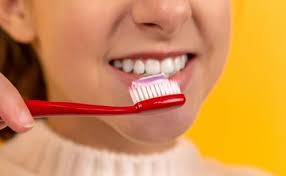Introduction
Oral hygiene is a crucial aspect of our daily lives that often goes overlooked until problems arise. Neglecting our oral health can lead to various dental issues, such as cavities, gum disease, and bad breath. In this comprehensive guide, we will explore the importance of oral hygiene, effective practices, and tips for maintaining a healthy smile. By the end of this article, you’ll have a better understanding of how to prioritize your oral health and enjoy the benefits of a beautiful smile.
Why Oral Hygiene Matters
- Preventing Dental Problems
Good oral hygiene is the foundation for preventing dental problems. It’s much easier and less costly to maintain healthy teeth and gums than it is to treat dental issues once they occur. Regular brushing, flossing, and dental check-ups can help prevent cavities, gum disease, and other oral health problems.
- Boosting Self-Confidence
A bright and healthy smile can significantly boost your self-confidence. When you know your teeth look good and your breath is fresh, you’re more likely to smile and engage with others. Confidence in your smile can positively impact your personal and professional life.
- Maintaining Overall Health
Oral health is closely linked to overall health. Poor oral hygiene can lead to systemic health issues like heart disease, diabetes, and respiratory problems. By taking care of your oral health, you’re also contributing to your general well-being.
Effective Oral Hygiene Practices
- Brushing
Brushing your teeth is the cornerstone of oral hygiene. Use a soft-bristle toothbrush and fluoride toothpaste to gently clean your teeth. Be sure to brush for at least two minutes, making sure to reach all surfaces of your teeth.
- Flossing
Flossing helps remove food particles and plaque from between your teeth and along the gumline. Make it a daily habit to floss to prevent gum disease and cavities. If traditional flossing is challenging, consider using floss picks or interdental brushes.
- Mouthwash
Using an antimicrobial mouthwash can help kill bacteria and freshen your breath. Look for a mouthwash with fluoride to strengthen your teeth and prevent cavities. Remember, though, that mouthwash is not a substitute for brushing and flossing.
- Regular Dental Check-Ups
Even if you maintain a rigorous oral hygiene routine, it’s essential to visit your dentist regularly. Professional cleanings and check-ups can catch and address issues early, ensuring your oral health remains in top shape.
Tips for Optimal Oral Hygiene
- Choose the Right Toothbrush
Select a toothbrush with soft bristles to prevent damage to your gums and enamel. Replace your toothbrush or toothbrush head every three to four months or sooner if the bristles are frayed.
- Maintain a Balanced Diet
A diet rich in fruits, vegetables, lean proteins, and low in sugary snacks and beverages can promote good oral health. Avoid excessive consumption of sugary and acidic foods that can erode tooth enamel.
- Stay Hydrated
Drinking plenty of water helps flush away food particles and bacteria that can lead to dental problems. Water is also essential for saliva production, which plays a crucial role in maintaining oral health.
- Quit Smoking
Smoking is not only harmful to your overall health but also detrimental to your oral health. It can lead to gum disease, tooth decay, and even oral cancer. Quitting smoking is one of the best things you can do for your oral hygiene.
- Address Teeth Grinding
If you grind your teeth at night, consider wearing a nightguard to protect your teeth from damage. Teeth grinding can lead to wear and tear on your enamel and other dental issues.


